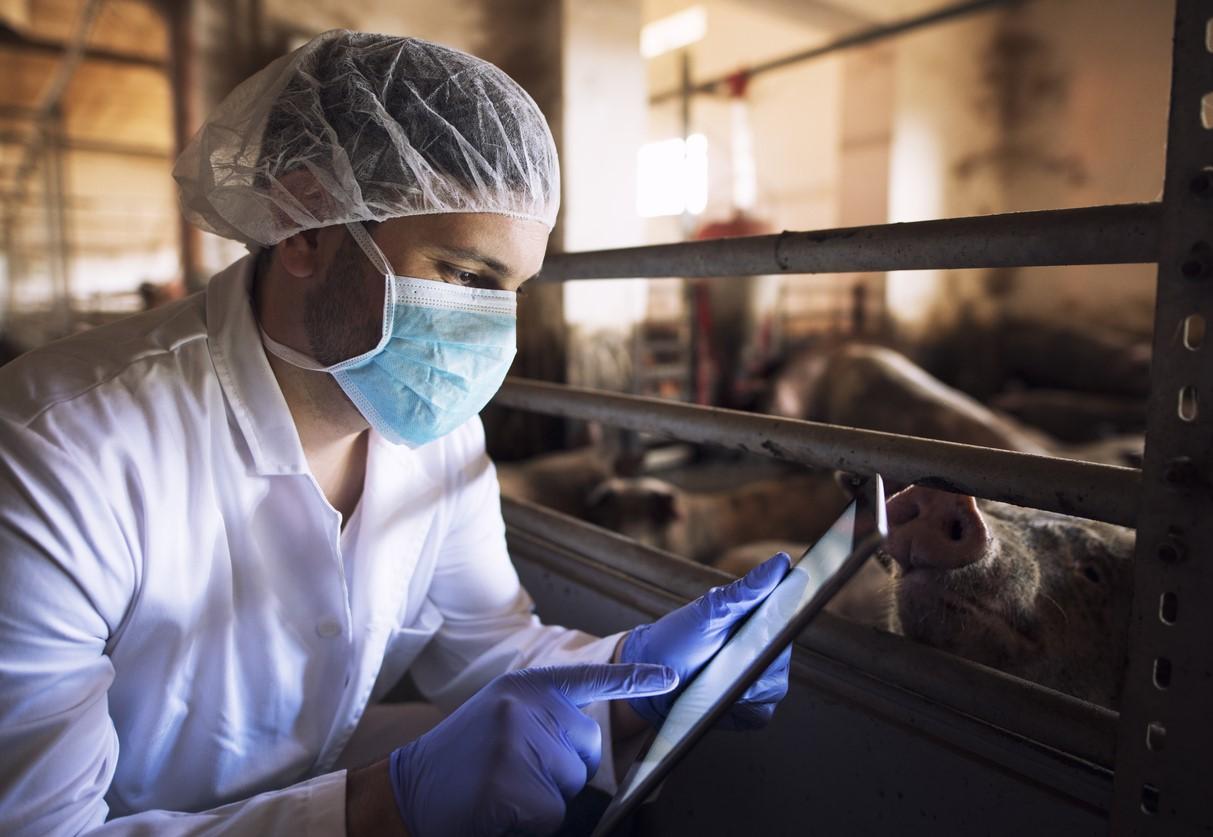Warning of the potentially devastating impact on human and animal health and food systems, world leaders today called for an urgent reduction in the use of antimicrobials in food production.
In a statement, the Global Leaders Group on Antimicrobial Resistance (AMR) called on all countries to stop using, for growth promotion in food-producing animals, antimicrobials that are critically important in human medicine.
The statement also urged limiting the amount of antimicrobials that are used to prevent infections in animals and plants, eliminating or reducing over-the-counter sales of veterinary antibiotics, and improving infection prevention and control in agriculture and aquaculture.
"Using antimicrobial drugs more responsibly in food systems needs to be a top priority for all countries," said Sheikh Hasina, Prime Minister of Bangladesh and Global Leaders Group on AMR co-chair. "Collective action across all relevant sectors is crucial to protect our most precious medicines, for the benefit of everyone, everywhere."
Reducing antibiotics in food animals
The statement was issued ahead of next month's United Nations (UN) Food Systems Summit, which takes place on Sep 23. It's the first official statement from the Global Leaders Group on AMR, formed in 2020 by the World Health Organization (WHO), the UN Food and Agriculture Organization (FAO), and the World Organization for Animal Health (OIE) to provide political leadership for global, regional, and national efforts to address drug resistance in humans, animals, and the environment.
Among the priorities for the group—which includes stakeholders in agriculture, health, development, and food production—is advocating for best practices on antimicrobials (including antibiotics, antifungals, and anti-parasitics) across all sectors, using a One Health framework.
The One Health concept views the health of humans, animals, and the environment as intrinsically linked. Experts believe strategies to combat AMR must address how antimicrobials are used in human and veterinary medicine and in agriculture.
The effort marks the latest push by global leaders to reduce the amount of medically important antibiotics being used in food-animal production. It's estimated that antibiotics bought for use in food-producing animals account for up to 80% of antibiotics sold in some countries. The widespread use of these drugs in livestock is widely seen as contributing to the emergence of drug-resistant pathogens that can be transmitted to humans via food and the environment.
In 2017, the WHO issued guidelines recommending complete restriction of medically important antibiotics in food-producing animals for growth promotion and disease prevention. The WHO has also been working with the FAO and the OIE to help countries address antibiotic use in food animals.
Those efforts have had an impact. Several countries, including the United States and European Union member states, have already banned the use of medically important antibiotics for growth promotion in livestock.
The European Parliament also voted in 2018 to limit the use of antibiotics for disease prevention to individual animals, and only in cases where a veterinarian believes there is a high risk of infection. That law is expected to go into effect in 2022.
But many countries have limited regulations on antibiotic use in the food-animal sector, and some have none. A recent survey conducted by the WHO, OIE, and FAO found that 77% of countries regulated the prescription and sales of antibiotics for use in animals, and only 63% had laws prohibiting the use of antibiotics for growth promotion.
In addition, a report published last week by India's Centre for Science and Environment pointed out the lack of coherence from the WHO, FAO, and OIE on how antibiotics should be used in food-producing animals. The report noted that each organization has its own set of guidelines, and while they all agree that critically important antibiotics should not be used for growth promotion in food animals, there is less agreement on whether antibiotics should be used for disease prevention.
Antibiotic use in crops, plants
Food-animal production is only one part of the equation. Antimicrobials are also used to prevent and treat diseases in plants.
Although there is little documentation or monitoring of antimicrobial use in plants, a study published last year found that in countries in Africa, Asia, and the Americas, 11 antibiotics belonging to eight classes are being recommended for use on more than 100 crops. In the United States, citrus farmers in Florida have been given the go-ahead to spray the medically important antibiotic streptomycin on citrus trees to prevent citrus greening.
The statement from the Global Leaders Group on AMR says that, to promote the responsible and sustainable use of antimicrobials in food production, countries should stop using them to compensate for inadequate infection prevention and control measures and improve access to diagnostic tools, vaccines, and non-antimicrobial alternatives.
The group also urges countries to ensure effective governance and oversight of antimicrobial sales, use, and stewardship in all sectors, and to develop surveillance systems for antimicrobial use and resistance.
























